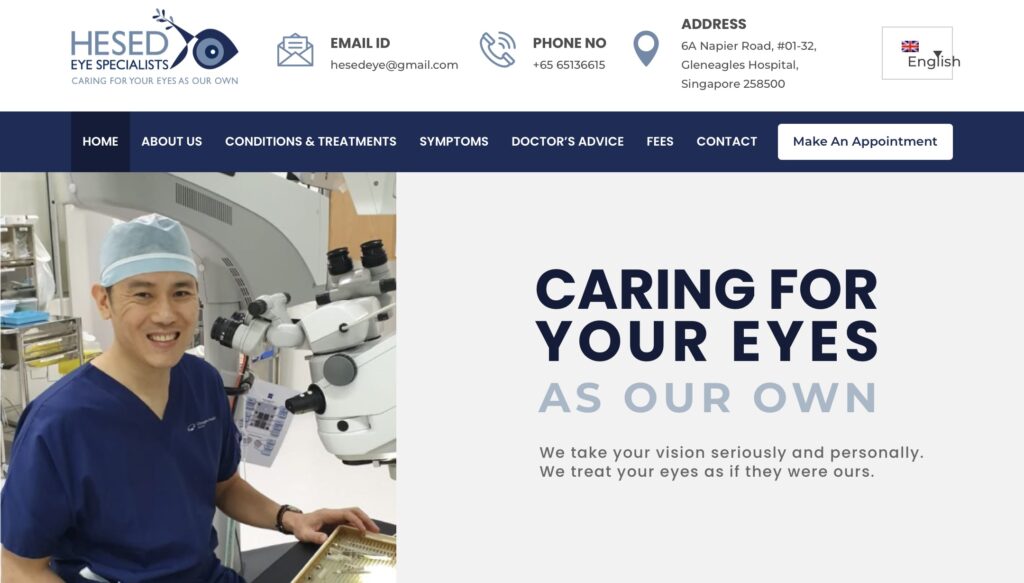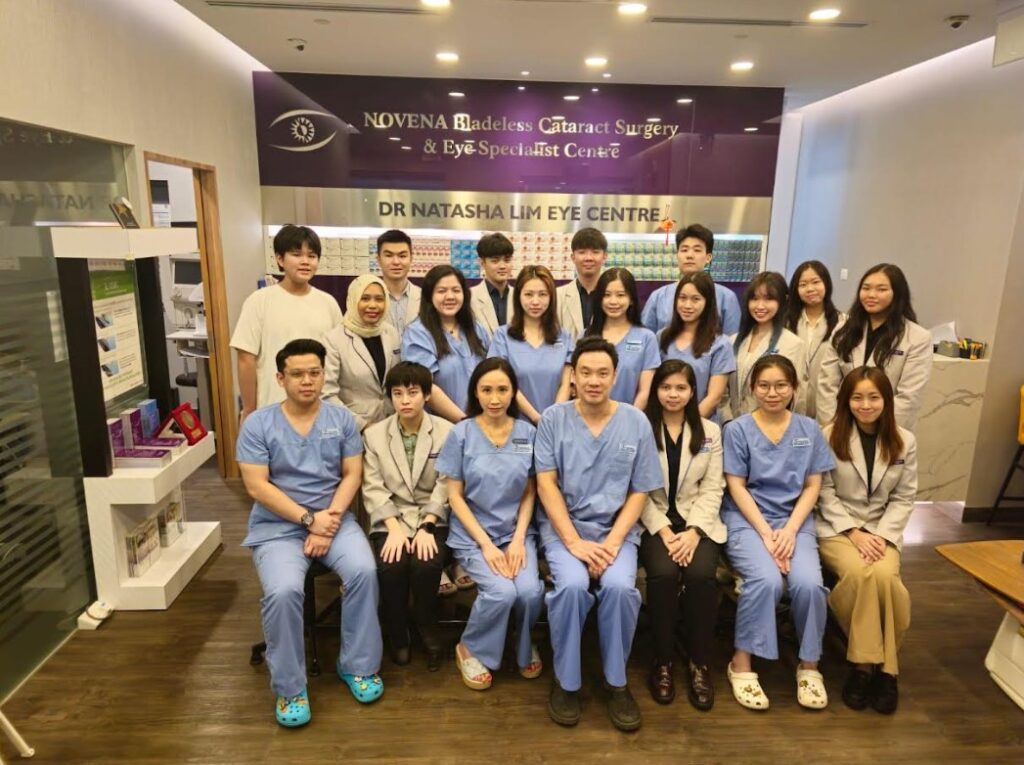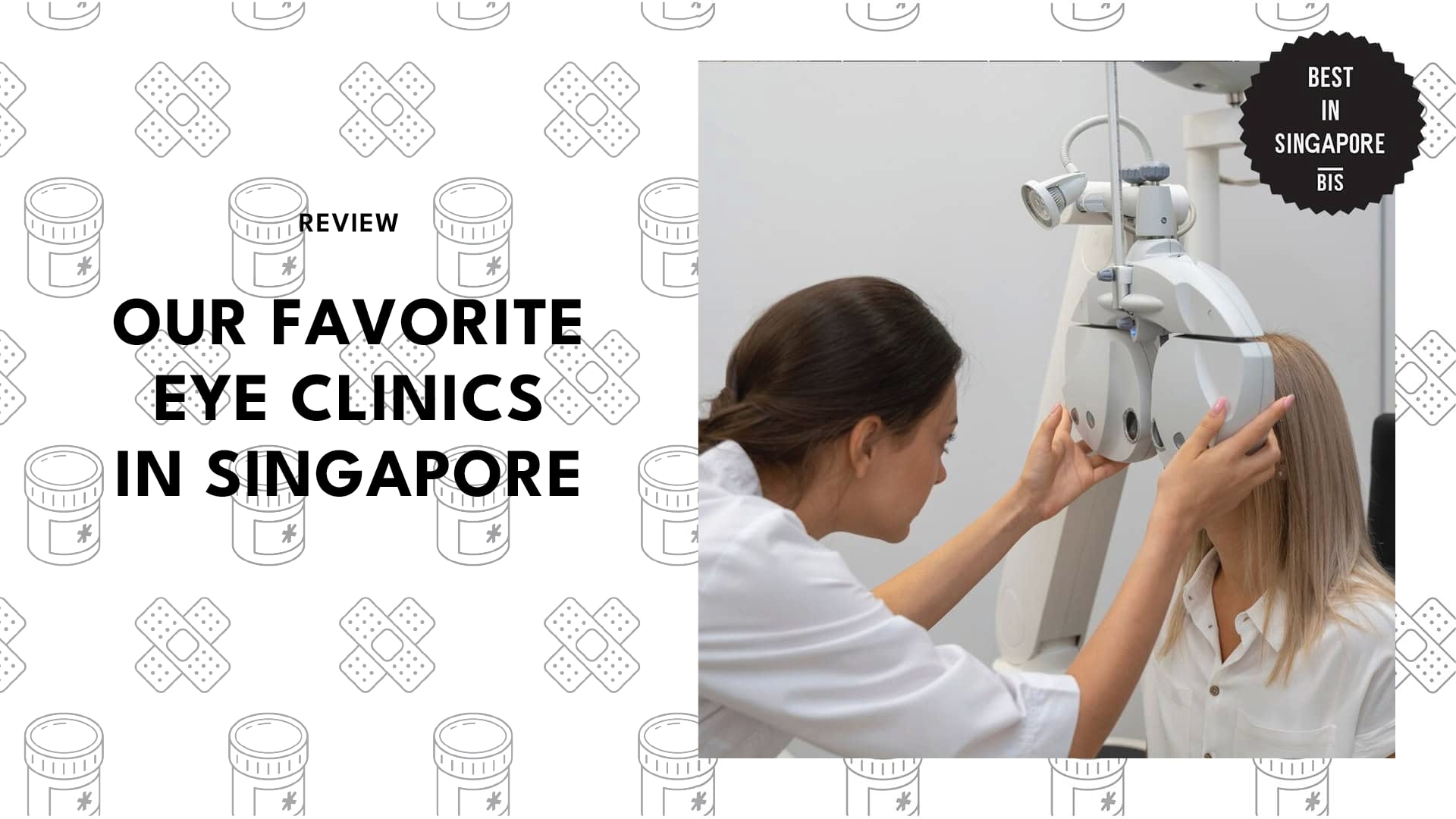Sight for Sore Eyes: Explore the 3 Eye Clinics in Singapore
Did you know that in Singapore, half of children develop myopia by age 12, with 83% becoming myopic by age 18 (Singapore National Eye Health Centre)?
If you need eye care or have concerns about your vision, this review covers several eye clinics in Singapore.
How much does an eye clinic in Singapore charge?
At public eye clinics or hospitals in Singapore,
- consultations typically range from S$40 to S$120,
- eye exams from S$60 to S$150,
- cataract/lens replacement surgery from S$800 to S$1,200 per eye (subsidised) or S$1,500 to S$5,000 per eye (unsubsidised),
- LASIK procedures from S$1,400 to S$3,500, and
- glaucoma surgery from S$900 to S$1,500.
Opting for a private eye clinic in Singapore comes with varying costs:
- consultations typically range from S$100 to S$400,
- eye exams from S$100 to S$400,
- cataract/lens replacement surgery from S$4,000 to S$8,000 per eye,
- LASIK procedures from S$3,000 to S$5,000,
- glaucoma surgery from S$2,000 to S$3,000, and
- for double eyelid surgery, specific costs may be obtained upon consultation with the clinic.
1. Eagle Eye Centre (King Albert Park) – Dr Val Phua
Address: 9 King Albert Park, #01-42/43/44, Singapore 598332 (Google Maps)
Contact: 64751000; WhatsApp: 96631268
Hours: Monday – Friday: 08:30 to 6:00 PM
Sat: 08:00 to 12:30 PM
Dr. Val Phua at Eagle Eye Centre, King Albert Park, treats a variety of eye conditions, including diabetic retinopathy and glaucoma. He conducts routine check-ups and performs surgeries, with a focus on cataract surgery.
The clinic employs over 90 staff members and provides range of services, such as implantable Collamer lens surgery, PRK, LASIK, SMILE, as well as dry eye and presbyopia management.
Dr. Phua also performs the ReLEx SMILE procedure, using optical anaesthetic eye drops to numb the eye before the procedure, which minimizes discomfort during the process of corneal lenticule removal.
Pros
- Convenient location
- 90 staff members
Cons
- Mostly focuses on surgical treatments
2. Hesed Eye Specialists – Dr Owen Kim Hee

Address: Gleneagles Hospital #01-32, 6A Napier Rd, Singapore 258500 (Google Maps)
Contact: +6565136615
Hours: Monday to Friday, 9 AM – 5 PM; Saturdays, 9 AM-noon
Dr. Owen, an ophthalmologist with 20 years of experience, treats various eye conditions, including dry eye, conjunctivitis, pediatric eye issues, myopia, diabetic eye disease, glaucoma, cataracts, presbyopia, floaters, retinal tears, retinal detachments, and age-related macular degeneration. He also performs cataract surgery and minimally invasive glaucoma procedures.
Patient reviews suggest that Dr. Owen is a thorough and attentive specialist who explains procedures clearly and listens to concerns. Many patients have reported positive experiences with both Dr. Owen and his team, noting the clinic’s approachable and helpful staff.
The clinic is described as efficient, with minimal waiting times. Its facilities are modern and well-maintained, featuring equipment for diagnoses and treatments.
The clinic’s environment is designed to provide patients with comfort and care.
Pros
- Good surgery outcomes
- Transparent pricing
Cons
- Solo specialist could make it hard to book slots
3. Dr. Natasha Lim Eye Centre

Address: #19-01/02/03/07/11 Royal Square Medical Centre Royal Square @ Novena 101 Irrawaddy Road Singapore 329565 (Google Maps)
Contact: +6565702220
Hours: M-W-F, 8:30 AM – 9 PM; T-Th, 8:30 AM – 6 PM; Saturdays, 8:30 AM – 1 PM
Dr. Natasha Lim is a LASIK surgeon in Singapore with over 20 years of experience.
Also, in 2011, she became the Medical Director of The Lasik Surgery Clinic at Wheelock and Centre for Eye Surgery.
She brings her experience and skills to offer eye care services like LASIK, Micro-Incision Cataract Surgery, and Presbyopia “Lao Hua” Correction.
The online reviews reveal that Dr. Lim is also friendly and welcoming towards her customers. Many rave at how her LASIK surgery has improved their sight in 20 minutes. She eased their anxieties regarding the procedure every step of the way.
Pros
- Reasonable pricing
Cons
- Closed on Sundays


